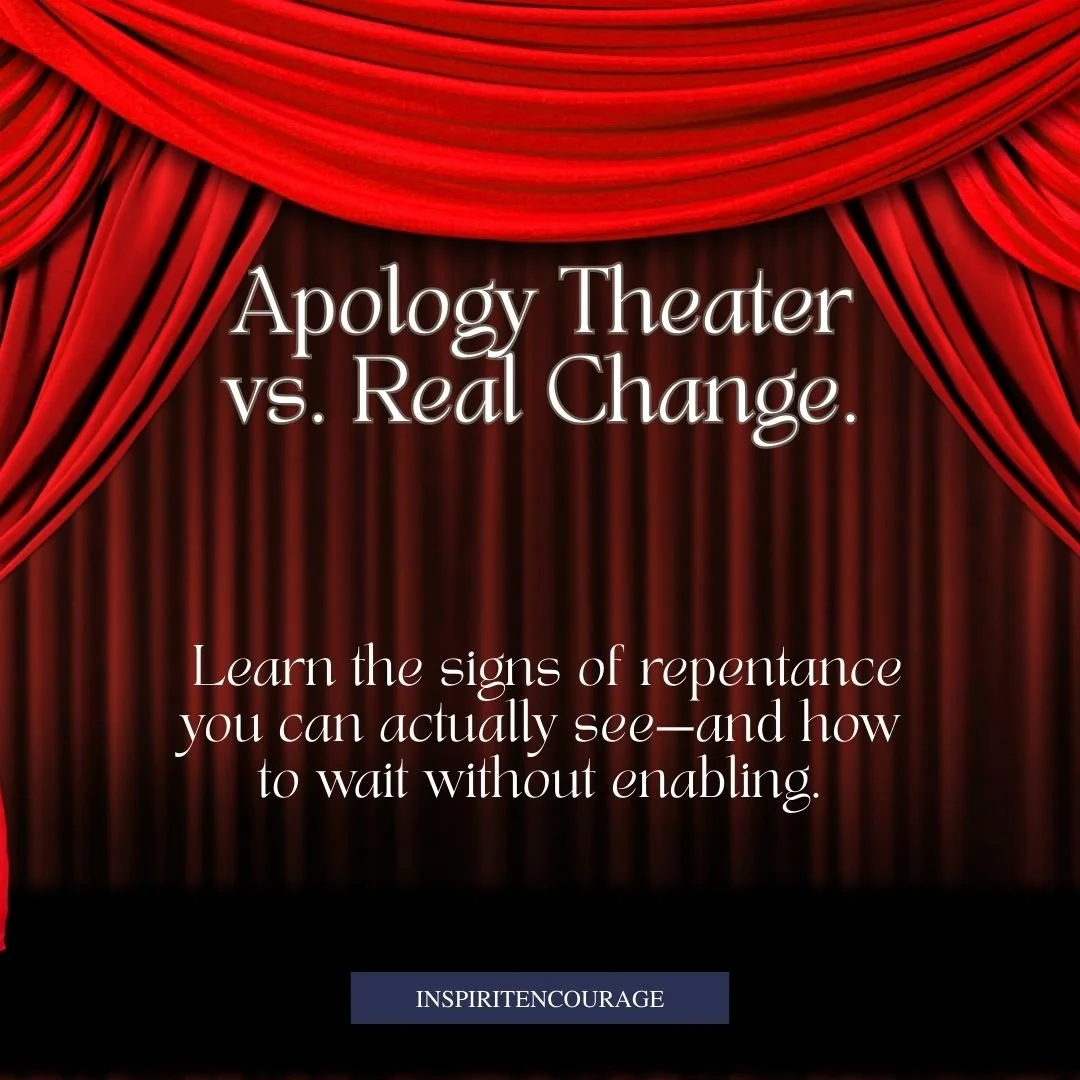How to Forgive Repeat Offenses (When Patterns Don’t Change)
The apology lands and your shoulders drop a little. You want to believe this time will be different. For a few days, it is. Then the same words return, the same silence, the same sharp edge. You feel foolish for hoping and mean for bracing. Part of you wants to fling every door open; part of you is already reaching for the chain.
This isn’t a failure to love. It’s what love feels like when history and hope collide.
When Hope and History Share a Room
Forgiveness is your side of the door with God. You release the debt to Him so your heart doesn’t harden into a courtroom. But release isn’t the same as access or trust. Trust regrows at the speed of truth; access returns at the pace of safety. You can forgive today and still say, “Not yet,” to certain doors without being vindictive.
What Real Change Looks Like (So You’re Not Gaslit by Tears)
Patterns are confusing because feelings can be real while behavior stays the same. Repentance in Scripture isn’t a mood; it’s motion—steady truth, owned consequences, and steps you can actually see. You don’t need perfection to hope; you do need direction that lasts longer than the apology glow.
The Boundary That Let Me Breathe
I once kept resetting the relationship to zero after every “I’m sorry.” It felt holy. It was exhausting. The day I stopped was not the day I stopped forgiving. It was the day I stopped rushing trust. I moved hard conversations into writing so the story didn’t shift. I chose public places for meetings. I invited one wise person to sit with us. My voice stayed gentle; my line stayed firm. For the first time in months, I slept through the night. Peace didn’t mean pretending. It meant telling the truth without venom.
Words You Can Use (Short, Clear, Kind)
When patterns won’t change, fewer words help. Try your own version of these:
“I forgive you, and I’m not ready to meet one-on-one.”
“I’m willing to talk, but I need it in writing so we’re clear.”
“If this changes for a season, I’m open to revisiting access.”
“I won’t defend this boundary again.”
These aren’t punishments. They’re stewardship—of your heart, your time, and the people affected by the pattern.
A Biblical Example: Paul and Alexander
Paul didn’t confuse forgiveness with access. He names “Alexander the coppersmith” who “did me much harm,” then entrusts justice to God and warns Timothy: “The Lord will repay him according to his deeds. Beware of him yourself” (2 Timothy 4:14–15). That is release without naivety—Paul relinquishes revenge yet sets a protective boundary for the church.
Earlier he references “Hymenaeus and Alexander, whom I have handed over to Satan that they may learn not to blaspheme” (1 Timothy 1:20). That’s church discipline, not cruelty: truth told, harm named, consequences allowed for the sake of repentance. The pattern wasn’t ignored; it was addressed with clarity and distance.
Prayer That Keeps You Tender (Without Becoming a Doormat)
Blessing someone in prayer isn’t approving their behavior; it’s entrusting them to God so bitterness doesn’t hollow you out. When their name rises, try one sentence: Do Your good in them, and in me. You can pray that from the porch while the chain stays on. Peace and distance can coexist.
If Safety Is on the Line
If the pattern crosses into coercion, threats, abuse, or illegality, step back and get help. Involving pastors, counselors, mediators, or authorities isn’t revenge. It’s righteous and necessary. Forgiveness lays down personal vengeance; it does not erase appropriate consequences.
When You’re the One Who Keeps Repeating
If you see yourself on the other side of this, there is a way back. Don’t perform sorrow; practice change. Ask for the whole truth. Listen without defending. Accept consequences. Make repair that costs something. Keep walking the new direction when no one is clapping. Trust returns at the speed of faithfulness, not the volume of tears.
A Quiet Kind of Hope
Some stories turn quickly. Many change slowly or not at all. You are not required to pretend in order to be kind. You can forgive, tell the truth, keep wise space, and leave the door on the chain until safety is real. If change comes, it will have roots, not wings. If it doesn’t, you can still live free in the presence of God.
If you want structure for this road—releasing the debt to God while learning boundaries that honor truth—Alive Again: Find Healing in Forgiveness will walk with you.
